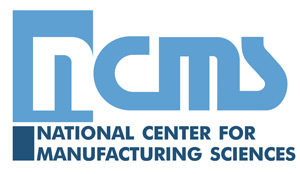Development of Operational Transition Procedures & Sustainment Analysis for Global Logistics Integration System (GLIS) Supply & Maintenance Functions – Phase IV
NCMS Project #: 140868
Problem: Developing an enterprise-level, information-driven logistics program that provides the right logistics data at the right time and at the right place is an ongoing challenge for industry. According to the Project Management Institute (PMI), nearly 70% of all Enterprise Resource Planning (ERP) deployment projects fail, are late, or go over budget.
Benefit: The ERP being used as a testbed in this initiative is fast becoming the “logistics management tool” model of choice for the commercial logistics community. This in turn has a direct benefit for the general public: enhanced logistics systems allow companies to provide goods and services to consumers at a faster rate, which not only increases consumer satisfaction, but also increases the speed at which goods, services, and money change hands, therefore benefiting the American economy. The improved efficiencies of logistics systems also reduce costs for the companies via reduced labor and transportation expenses; these savings can then be passed to the consumer by reducing the price of goods.
Solution/Approach: To address the challenge, a multi-phase CTMA project called GLIS was initiated. The Marine Corps (USMC) ERP logistics system, Global Combat Support System – Marine Corps (GCSS-MC), which is critical to the maintenance and sustainment of their assets worldwide, is being used as a testbed for this ERP improvement initiative.
GLIS Phase I focused on continued stabilization of GLIS to include training, software functional enhancement, baseline configuration, assessing system performance, and to further examine best business practices for system enhancement, portfolio solutions, and guiding industry on future efforts.
GLIS Phase II developed processes and procedures that significantly limit the impact of major software upgrades to the ERP being used as a testbed.
GLIS Phase III is demonstrating that ERP functionality tailored to unique organizational configuration can enable the sharing of data and resources across the enterprise. Under Phase III, integration, utilization, and functionality of various GCSS-MC logistics support systems are being addressed.
GLIS Phase IV will expand on Phase III but with a focus on unit deployment. This phase will demonstrate how more fluid data sharing and more focused data decisions can quickly be made allowing material, equipment, and personnel to be available when needed especially for deployments both within the Continental United States (CONUS) and overseas (OCONUS). The LSCO is the coordinating body of the logistics systems across the Marine Corps. GLIS Phase IV will focus on full support of LSCO for the betterment of the ERP.
Impact on Warfighter:
- Reduction in costs
- Increased asset readiness
- Increased visibility of supply status and availability of resources
DOD Participation:
- U.S. Marine Corps Headquarters, DC I&L (LPV, LPC)
- U.S. Marine Corps Logistics Command
- U.S. Marine Corps Systems Command
Industry Participation:
- Anglicotech, LLC
- NCMS
Benefit Area(s):
- Cost savings
- Obsolescence management and continued maintenance capability
- Safety
- Improved readiness
Focus Area:
- Business IT and analytics
